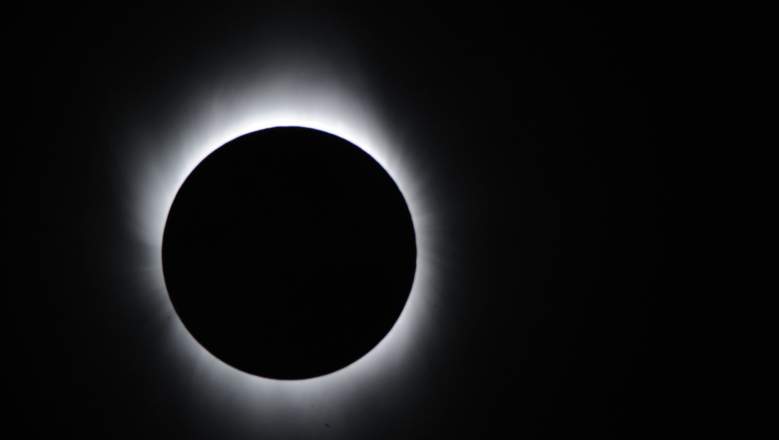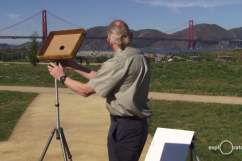
Getty The total solar eclipse visible in Japan on July 22, 2009.
Illinois will be one of the few states where you can watch Monday’s solar eclipse in its totality.
The eclipse is forecasted to through the Midwestern state between 12:16 p.m. and 2:48 p.m. Central time. However, it won’t be fully visible in Chicago and its surrounding area at its peak. Instead, you’ll have to travel to the southern part of the state to get a full glimpse of the rare astronomical event.
According to The Chicago Tribune, peak viewing of the eclipse will take place around 1:20 p.m. The eclipse is expected to be fully visible in Illinois in Carbondale and Makanda, and in order to view it, you’ll have to be facing south to southwest. There’s estimated to be a 2 minute, 42 second period of darkness until the Moon completes its pass of the Sun.
Here’s an interactive map of the eclipse passing through Carbondale.
If traveling to one of the locations listed above, prepare for some additional traffic.
The Belleville News-Democrat reported that Carbondale leaders were prepping for crowds of 50,000 people or more. The city is home to Southern Illinois University.
“We’ve seen pretty steadily more foot traffic in downtown Carbondale, a little more vehicular traffic, but everything looks clear,” city spokeswoman Amy Fox said to the newspaper.
In Chicago, the moon will be blocking almost 90 percent of the sun, Curbed Chicago noted, however the weather is looking less than ideal for the area. The best time to view the eclipse, weather permitting, will be from 11:54 a.m. until 1:19 p.m.
Monday’s forecast, per The Weather Channel, calls for cloudy skies and scattered thunderstorms in the Chicago area.
Numerous places around the city are hosting eclipse watching parties. One of them is at the Adler Planetarium, where a block party is being held with many outdoor activities and live experiences.
Another popular event is at the Chicago Botanic Garden, which will distribute pairs of the popular solar glasses starting at 10 a.m. to prepare for the eclipse.
See more places to watch the eclipse in Chicago by clicking here.
After moving through Illinois, the eclipse will move near St. Louis before moving toward southeastern Kentucky.
